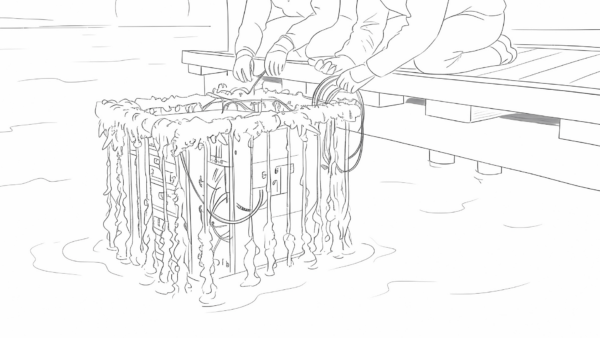

Digital Culture – 30 projects selected
In the first Digital Culture round of 2024, 30 applications have been selected. Sean Gilis, coordinator Digital Culture, reflects on the round.
2 May 2024
general impression
In the first Digital Culture round of 2024, a diverse group of digital makers and designers working in the fields of media arts, games, AI, world-building, creative coding, sensory storytelling, art-science and internet culture are being supported. A characteristic of this group of makers is opening up the principles behind technology (hacking), making them understandable and utilizing them for new purposes (including design). This is often done by critically approaching digital developments and imagining transparent, inclusive alternatives, such as the Public Spaces conference. New digital forms of interaction are also explored and technology in the making process is often seen as an artistic partner or poetic tool, for instance in Geert Mul’s project Beyond the Average, HEARTSYNC on tour by Nino Basilashvili and Onion Skin and Crocodile Tears by Kevin Bray. Finally, six games or crossovers with games are being supported in this round.
selection
The available budget in this round was sufficient to award a grant to all 30 positively assessed applications. A few notable projects from this round’s selection are:

Armenian culture has been coming under pressure for centuries, because the country lies geopolitically between major powers such as Russia and Turkey. New forms of passing on traditional Armenian music and stories are therefore important and set the tone for a global curiosity and diversity. With the project Bird1000.com, a collective of international artists from the Netherlands – including web developer Thomas Van Glabeke, illustrator Khoren Matevosyan, animator Astghik Harutyunyan, music composer Tigran Hamasyan and creative director Ruben Van Leer – is introducing an accessible and artistically layered game that is easy to play and share in smartphone and desktop browsers. The game’s story is inspired by a traditional Armenian folk tale Hazaran Blbul. It is an ode to mystical stories under pressure in our digital world. Consisting of particularly innovative artwork, the game offers a unique opportunity to tell and experience a layered story of resurgence. The work will be launched in mid-2024 in collaboration with music label NAIVE, international organization ONEarmenia and Holland Festival, among others.

In this project, Kantor Knierzinger investigates the question: why do printers never work? The study consists of two parallel tracks conducted using a philosophical-artistic research method. The first part involves interviews with experts from the fields of art, phenomenology, computer sciences, DIY electronics, consumer protection and printing. In addition, non-experts are also interviewed, so that different perspectives are provided. The interviews will be published as edited podcasts. The second part of the project will experiment with printer hacking, exploring whether a user can manipulate the printer to their liking. The ultimate goal of the project is to give the printer user a sense of democratic rationalization of the device and answer the question: can the printer act as a case to change the system of planned obsolescence? The follow-up to this starting grant could take different forms, such as the creation of experimental printing with the adapted printers, workshops for makers or a publication about the research.

On 6 and 7 June 2024, PublicSpaces, in collaboration with Waag Futurelab, is organizing its annual conference entitled Digital Sovereignty: Taking back the internet! at Pakhuis de Zwijger in Amsterdam. The internet has become an essential part of our world. For a democratic society to function, a healthy internet is crucial. During two full days, by means of a varied parallel programme of talks, panels, expert tables, workshops, a bazaar, an art programme with performances and installations for a diverse audience of connoisseurs, professionals but also curious newcomers, the internet will be discussed and criticized. The conference will be the hub of a better internet – to strengthen the professionals’ network, share new ideas and enable new collaborations. For the general public, the organization wants to raise awareness about a better internet and show the opportunities but also the pitfalls of the digital world.

Click here to see all the projects selected in Digital Culture in 2024.
numbers
Of the 63 subsidy applications taken into consideration, 30 are receiving grants. This brings the percentage of applications receiving grants to 46%. The budget available for this round was € 473,000.
next round
The upcoming closing date for Digital Culture is 10 September 2024.







